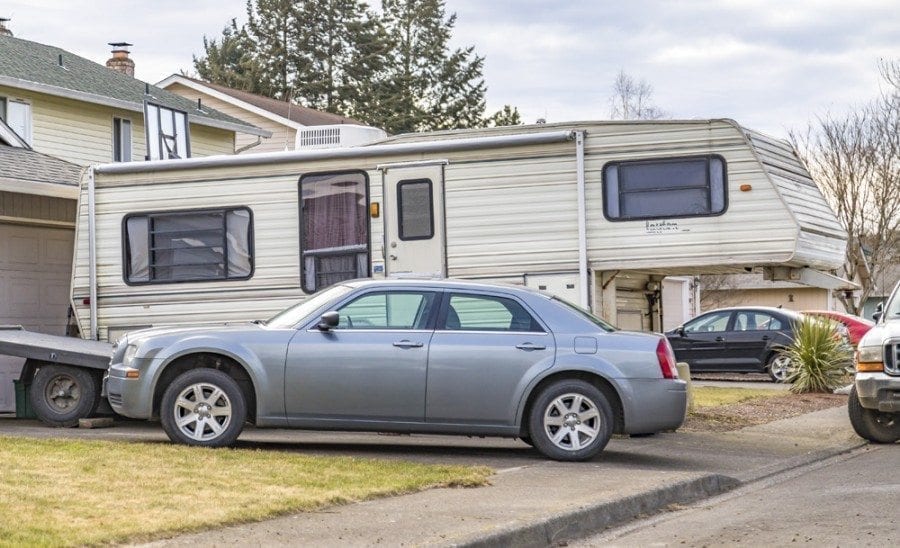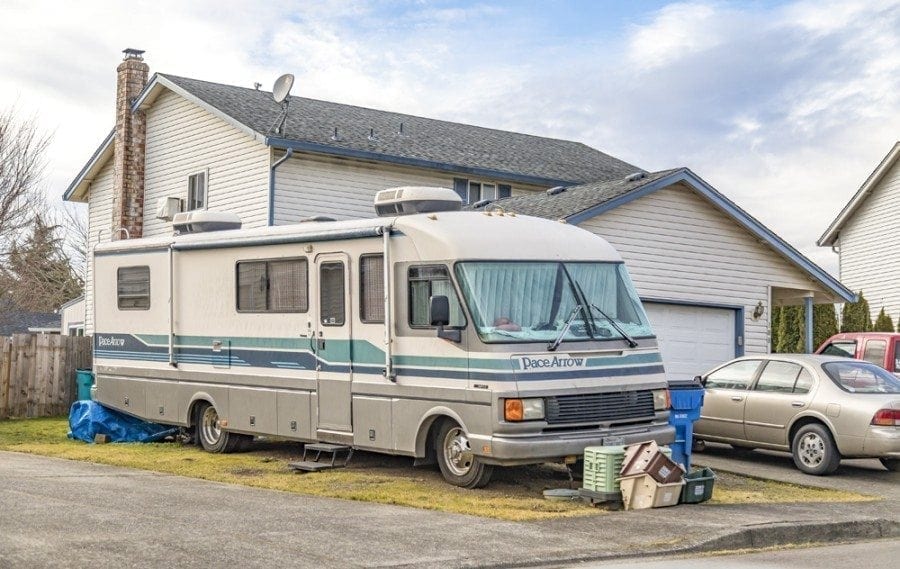VANCOUVER — If you own a boat, recreational vehicle (RV) or travel trailer and live in the Vancouver city limits, you may want to keep an eye on upcoming Vancouver City Council meetings.
That’s because the city councilors are currently reviewing possible changes to the city’s RV, boat and trailer parking ordinances.
At a council work session held in late January, the city of Vancouver’s principal planner, Bryan Snodgrass, provided the council with an overview of RV, boat and trailer parking in Vancouver and said the council had three options.

“We wanted to get broad direction [from council] on the general path to follow,” Snodgrass said. He characterized the council’s three options as: 1.) keeping the status quo, which allows these types of vehicles to be parked in a driveway, as long as that driveway is an impervious surface like asphalt or concrete and not something that would allow leaking oil or gasoline to seep into the ground; 2.) making minor changes to the current ordinance, perhaps requiring owners to have up-to-date licensing for RVs, boats and travel trailers before they park them in driveways; and 3.) taking more aggressive measures to restrict RV, boat and travel trailer parking within the city limits.
Deciphering exactly how many RVs, boats and travel trailers are currently parked within Vancouver’s city limits is tough, Snodgrass said, but his staff has determined that there are roughly 500 RVs, 1,500 boats and 1,000 travel trailers licensed to Vancouver residents.
Councilmember Alishia Topper asked Snodgrass what options residents had if they couldn’t park these types of vehicles in their own driveways.
The city’s current law limits off-street parking for these types of vehicles to four hours, Snodgrass said. There are nearly 20 off-street parking facilities that accept RVs, boats and trailers, Snodgrass added, but parking your vehicle there “is not inexpensive.”

Councilmember Jack Burkman said he didn’t want to create “an onerous ordinance” that would be difficult for the city to enforce, as well as confusing for residents, many of whom may live in areas annexed by the city and are used to more lenient rural rules related to the parking of such vehicles. He did caution, however, that the city needs to take action to avoid having disabled RVs, boats and travel trailers that become eyesores and cause conflict within neighborhoods.
“What we have now gives too many provisions and then it starts snowballing. Maybe we say they have to be licensed to park there, with a side yard [parking policy] that would need neighborhood approval. With boats over a certain height, maybe we need fencing,” Burkman said.
Burkman, along with most of the council, thought the city did need to “take a step forward and clamp down on [disabled and falling-apart RVs, boats and trailers] that are eyesores in the neighborhood,” but said he worried that implementing aggressive changes could cause shock to residents and to code enforcement officers, who would have to make sure the city’s new policies were being carried out.
“I really think we want to take smaller steps and not tackle everything at once,” Burkman said.
Councilmember Bill Turlay questioned the other councilmembers’ reluctance to take more aggressive measures.
“I’m not very in favor of this [type of parking] in a neighborhood, but let’s see how it works out,” Churley said.

The issue of whether RV, boat and trailer parking is a pressing concern in Vancouver is up for debate. City leaders say they’ve fielded calls from at least two neighborhood representatives who want to see more restrictions within the city limits, but Sree Thirunagari, a building official for the city of Vancouver, told city councilmembers that the city does not receive too many complaints about RVs, boats or travel trailers parked in neighborhoods.
“We don’t get a large volume of complaints relating to RVs and boats. We get just a handful, maybe 20 to 30, in a year,” Thirunagari said, adding that the bulk of the city’s code complaints are related to overgrown vegetation and other parking-related issues.
Still, other cities around the country seem to be grappling with similar questions about RV, boat and travel trailer parking in neighborhoods:
- In California’s Santa Ynez Valley, north of Los Angeles, city councilors have proposed limiting parking to a total of two RVs, boats or travel trailers on one property and making a fence-requirement if people park the vehicles in their side or back yards.
- In Kenner, Louisiana, the state’s sixth-largest city, the city council is reviewing a 2016 ordinance that would have gone into effect this April, making it illegal for residents in that city to park their RVs, boats and trailers in the front of their home and requires owners to either park the vehicles in a driveway not directly in front of their house, in a garage or in some sort of legal, off-street parking structure or face fines and other penalties.
- And city councilors in Fresno, Calif., recently voted 7-0 to limit RV parking on city streets to no longer than 24 hours each week. That law applies to RVs longer than 18 feet as well as utility trailers, boat trailers and other equipment over 18-feet in length.
In Vancouver, councilmembers instructed staff to focus on subtle changes to the city’s policy and focus on a new policy that “addresses the aesthetic side of things” to prevent “eyesores” and that might require vehicles to be licensed as well as parked on impervious surfaces.
The issue is not yet slated for public hearings, but residents will have a chance to voice their opinion on the matter in the near future.
To view the work session related to RV, boat and travel trailer parking in its entirety, click here. To keep up with Vancouver City Council meetings and find agendas for upcoming council work sessions and meetings, visit www.cityofvancouver.us/citycouncil and click on the “Agendas & Minutes” tab on the left side of the page.




